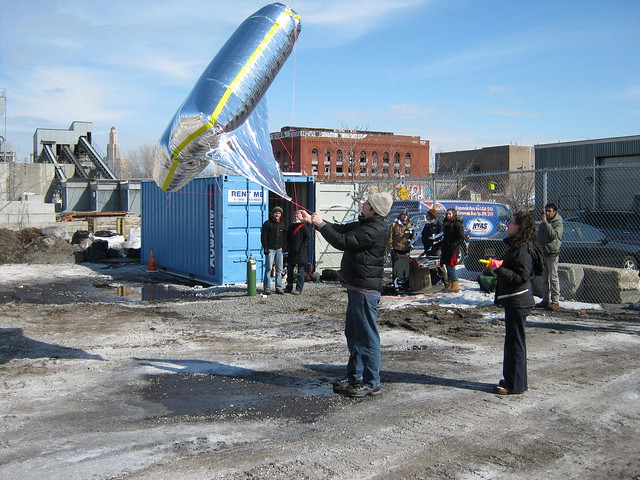Developing and Running a Public Lab Workshop

Why Hold a Public Lab Workshop?
This page is intended to gather tips on planning, running and following up on a Public Lab workshop.
Public Lab's workshops have multiple goals:
- to introduce interested people to using and/or making Public Lab tools
- to introduce the Public Lab community itself, particularly the open source ethic and recursive research culture
- invite the participants to join the broader Public Lab community
- create feedback so that participants in the workshop continue to share their results and research with Public Lab and can rely upon the community as a support network
Fulfilling these goals simultaneously can be a challenge. This page is for sharing issues encountered in workshops, offering advice on developing a workshop and as a portal for how to guides for workshops on specific tools
When to hold a Public Lab Workshop?
Presently it seems that this depends on the stage of a tool's development. Workshop are useful when a tool is at least prototyped so that participants can learn how to make and use a prototype. If a tool is still in the early planning or proof of concept stage, a more informal meetup or hackathon might be useful to explore possible solutions and try to achieve a proof of concept prototype.
(i.e. workshops may be distinct from Barnraisings or hackathons which are intended to further develop the tool)
Tips on Hosting a Workshop
Introducing open source collaborative practices
- It's useful to bring a "welcome" handout introducing Public Lab and the concept of open source research.
- Explain how the Public Lab community typically works together; consider projecting the website so participants can see the website and become familiar with using materials from it. e.g. reading directions from tool pages, finding research notes.
- Consider showing how to post a research note ("it's like a blog")
Fostering ongoing involvement with the Public Lab community
It is very important to document workshops with photos and videos so that the results can be open sourced and shared with the Public Lab community.
Consider:
- appointing someone official "documenter" of the workshop
- running a wiki page during the workshop so notes and thoughts can be immediately added, or using a common tag (like "saugus-landfill-mapping") for people to post research notes under
Teaching to a Range of different Skills
Public Lab's goal is to bring together people with diverse skills and backgrounds to improve the quality of environmental health research. Therefore Public Lab often hosts workshops that include a range of people from different backgrounds. It is important to leverage that diversity of knowledge and not get stuck teaching to one knowledge group.
Consider:
- Beginning with a round of introductions focused on why people have come to the workshop, what they hope to gain and how they hope to use the tools. Have them explain their expertise
- Organize the workshop based on the expertise in the room. If you have a lot of people with technology skills such as electronics, invite them to either work together to rapidly make and improve the tool, or to teach others with less experience. This worked out great in a Providence's AS220 Thermal Flashlight Workshop.
- Bring working versions of the tool to the workshop. If people are more interested in using rather than making the tool, then enable them to work with a finished tool to improve use of the tool.
....
Tool Specific Workshop how to guides
Examples of Public Lab Workshops
See many recent events, workshops, and meetups by looking for the "event" tag: http://publiclab.org/tag/event